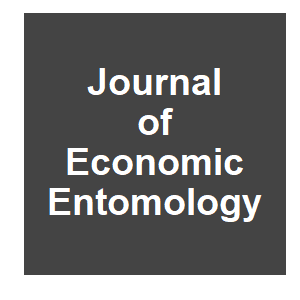Evaluating Flight Performance of Mass-Reared and Irradiated Navel Orangeworm (Lepidoptera: Pyralidae) for Sterile Insect Technique

|
J. Reger, J. A. Wenger, G. Brar, C. Burks and H. Wilson,
Journal of Economic Entomology,
2021.

Navel orangeworm (Pyralidae: Amyelois transitella) is a key pest of almonds and pistachios in California. Moths directly infest nuts which leads to reduced crop yield and quality, and infestation can predispose nuts to fungal pathogens that produce aflatoxins. While several integrated pest management strategies have been developed for A. transitella, studies have recently been initiated to explore the use of sterile insect technique (SIT) as an additional control tool. Mass-rearing, sterilization, and transportation methods originally developed for Pectinophora gossypiella (Lepidoptera: Gelechiidae) are currently being used for production of A. transitella in a mass-rearing facility, but the impacts of these processes on performance of A. transitella remain unclear. In this study, computerized flight mills were used to evaluate multiple flight parameters of mass-reared and irradiated A. transitella males and females relative to non-irradiated mass-reared moths and two strains of locally reared moths which were neither mass-reared nor irradiated. Mass-reared non-irradiated females performed similarly to both strains of locally reared females, flying a mean 9.4–11.8 km per night, whereas mass-reared and irradiated males and mass-reared non-irradiated males all flew shorter distances, in the range of 3.0–6.7 km per night. All of the mass-reared moths compared to locally reared moths had significantly more non-fliers that did not engage in more than two minutes of continuous flight. Findings from this study suggest that mass-rearing conditions reduce A. transitella flight capacity, while irradiation interacts with moths in a sex-specific manner. More related to this: Disrupting female flight in the vector Aedes aegypti Transgenic moths released to end one of the worst pests on the planet Genetically Modified Mosquitoes Take Flight to Fight Invasive Species in Florid Targeting female flight for genetic control of mosquitoes
|



